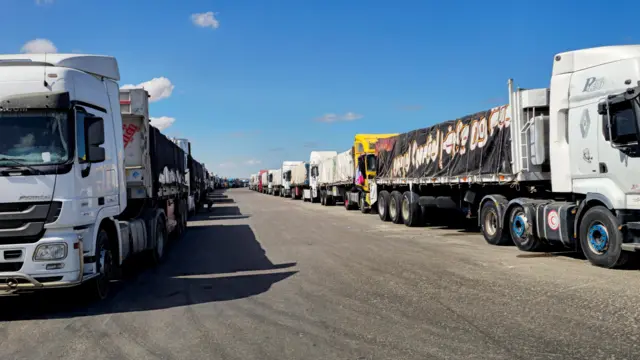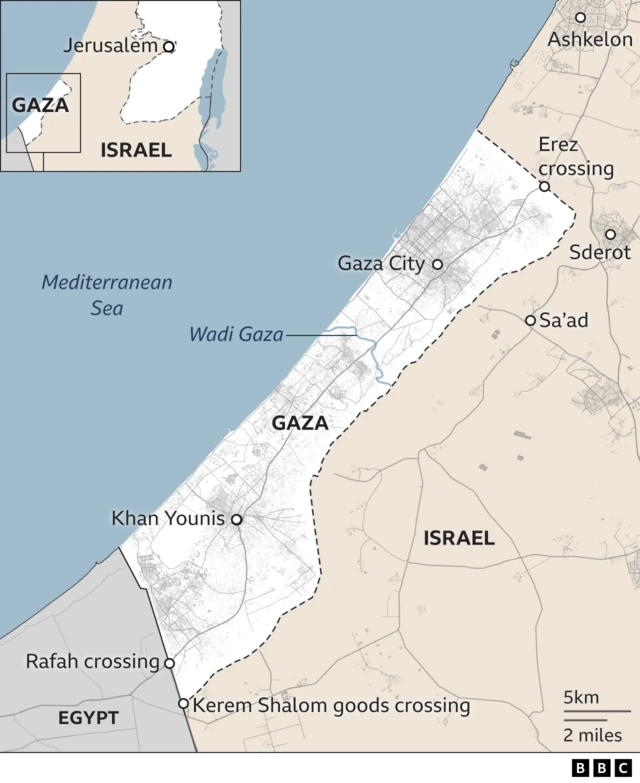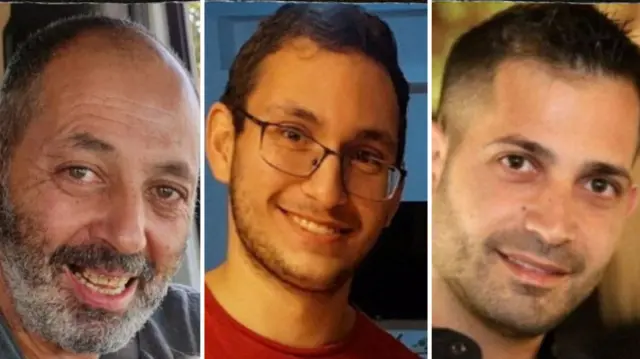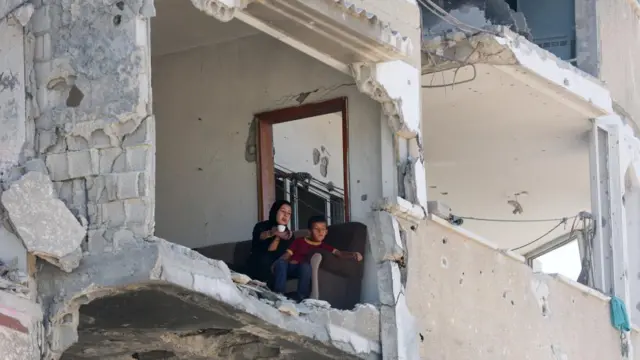More from Israeli official: Humanitarian aid will not pass through Rafah crossingpublished at 07:49 BST 15 October
 Image source, Reuters
Image source, ReutersTrucks carrying humanitarian aid line up near the Rafah crossing, in Egypt
More now from the Israeli security official mentioned in our last post, who tells the BBC: "Humanitarian aid will not pass through the Rafah crossing.
"No such agreement has been reached at any stage," the official from Cogat, the Israeli military body in charge of aid, says.
"The date for opening the crossing for the movement of people only will be announced later," they say.



